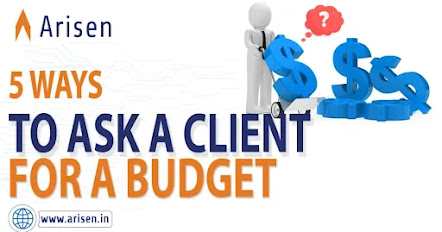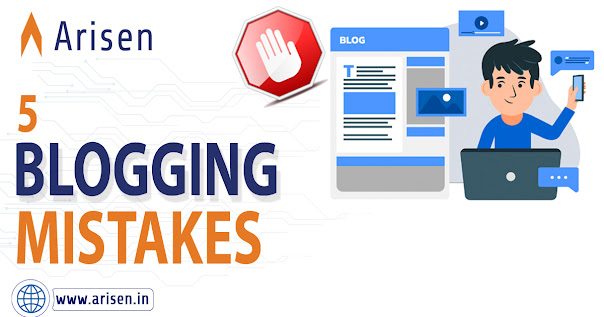When a webmaster discovers a sudden dip in their SEO ranks and all their hard work is lost, it is their greatest fear! Are you among them? So, breathe deeply! There are others besides you. Every website has experienced or will experience a decline in site ranking. Although you can’t escape it, you can surely lessen its effects.
Several factors might cause rankings to decline. This page explains both the apparent and less obvious ones. The following 10 factors can lower the rating of your website:
1. Lots of Low-Quality Links to Your Site
A low-quality link is any link built or acquired with the goal of manipulating PageRank and having a significant impact on a site’s position in the search results.
Links from spam comments, low-quality guest posts, low-quality article directories, and low-quality web directories are examples of low-quality links. Below is a comprehensive list of link strategies that Google considers to be unnatural.
How To Identify Low-Quality Links?
Check under Search Console for site messages. Several artificial links going to your website increase the likelihood that Google will directly contact you and ask you to remove such links.
2. Your Site Has Bad Redirects
When a visitor opens one URL but is instead directed to another, this is known as a redirect.
Take into account the possibility that you have a website page with the URL http://www.example.com/mens-shoes that appears on Google’s first page.
Each month, the page sees about 10K different visits. The developer modifies the URL to go to http://www.example.com’s main page due to certain design modifications on the website. This is a poor redirect since it does not achieve the user’s goal. The user is looking for men’s shoes, yet there is little to no information on men’s shoes on the newly redirected page.
How To Identify Bad Redirects?
All the landing pages that are ranked in organic search can be exported by visiting Google Analytics. Then, after selecting mode -> list – > paste as seen in the following screenshot, upload the list of URLs into Screaming Frog:
3. Your Site Has Duplicate Content
Duplicate content, in Google’s terminology, is defined as “substantive blocks of content inside or across domains that either completely match other content or are considerably similar.”
Your site’s rankings may suffer if you just updated your material and found that a significant amount of it was duplicated.
It may also be deemed duplicate content if you have added new pages to your website but those pages contain content blocks that are basically the same as those on previous pages (including the title or H1 tags).
How To Identify Duplicate Content?
To identify the pages on your site that have duplicate content, use the SEMrush Site Audit tool. Several pages with 80% content similarity will be flagged as duplicate material by the SEMrush Site Audit bot. Therefore, pages with insufficient substance may also be considered duplicate material.
4. You Have Recently Updated Your Title or Meta Tags
Because it enables Google to comprehend the contents of your web page, the title tag is a crucial component of your on-page SEO. So, even a small adjustment in the title tag could result in changes in the site rankings.
For instance, if the title tag of your homepage was formerly “Web Design Company Boston” and you changed it to “Hire a Web Designer in Boston,” your site ranking for terms like “web design company Boston” may suffer as a result of your decision to do so.
How to Confirm?
Confirm any modifications to the page’s Meta tags that may have been performed by asking your web developer.
To export all the landing pages that are ranked in organic search, log into Google Analytics.
To swiftly verify the updated Meta tags of all your pages ranking on organic search, use a web crawler like Screaming Frog. Compared to the previous backup of your website, check the title and meta tags (ask your developer, he will surely have them). Add a column for old meta tags and a list of all the URLs with new meta tags.
5. You Have Recently Made Changes in Content
After making any modifications to the content of your site, including H1s, there can be an abrupt reduction in ranks. Every website’s ranking is based on its content, which is a key site ranking element. Rankings are likely to change if anything is changed.
How to Confirm?
To export all the landing pages that are ranked in organic search, log into Google Analytics. You should request a backup of your website from your web developer. List the URLs that have changed and compare the content changes for each. Time will be needed to complete this task. Tools like OnWebChange, which alert you to any changes to the website’s design or content, can save you time.
6. Incorrectly Used Noindex tag, Robots.txt File and Nofollow Attribute
Oftentimes, webmasters overlook some crucial technical problems that could significantly affect the current rankings. The inappropriate use of the no index tag, robots.txt file, and nofollow attribute are three of these problems.
For instance, your web developer might have unintentionally included a noindex tag to one of your key pages that ranks highly in search. The outcome? The website is no longer listed in the rankings. Similar problems can arise with robots.txt, where a single line of code may prevent search engines from indexing your website and result in a sudden reduction in all site rankings.
Similarly to this, if your site’s internal pages have the nofollow attribute applied, it will negatively affect PageRank and lower your site’s rankings.
7. Lots Of Low-Quality Traffic
Although low-quality visitors may not immediately harm your site’s rankings, they might nonetheless have an adverse effect. If you notice that your site has suddenly started to receive a tonne of low-quality traffic, it’s possible that this is because your site is receiving links from irrelevant or low-quality directories through paid links or negative SEO, which can have a negative impact on the number of conversions, time spent on the page, bounce rate, etc.
The sum of all these elements will indicate to Google that users dislike your website, which may result in a drop in ranks.
How to Identify Low-Quality Traffic?
Using a tool like Finteza to assess the traffic quality will enable you to identify specific IP addresses and domains that are sending unreliable traffic to your website. Bots are one of the up to 12 categories of undesirable traffic that Finteza may detect.
8. Google Has Made a Recent Update To Its Ranking Algorithm
The search algorithm’s entire design naturally includes core algorithmic improvements. Your website might anticipate changes in rankings whenever such modifications take place (they might occur many times each day and Google might not explicitly mention such updates).
A drop in ranks as a result of a Google update does not always indicate that there is a problem with your website.
While core updates may not always be bad, they can reveal issues with your website.
How to Confirm the Update?
Follow the official Google Webmasters Blog for updates. Google frequently announces algorithmic improvements that have a detrimental impact on some sites and frequently provides instructions on how to fix your website. You can fairly presume that the change in rankings is the result of core upgrades if Google makes no notification.
The only thing you can do after a core upgrade is to enhance the user experience. Google will most likely be pleased with your website if users are satisfied with it.
9. Violated Copyright Knowingly or Unknowingly
Your site’s rankings will suffer if you frequently receive valid copyright takedown notices. Sites having a lot of removal notifications may show up lower in our results, according to Google. This ranking adjustment should make it simpler for consumers to find reliable, high-quality sources of material, whether they’re looking for a song preview on NPR’s music website, a TV show on Hulu, or fresh Spotify music streams.
This upgrade, also known as Emanuel or the Pirate update, is most likely to affect websites that offer music or video streaming.
How to Identify Copyright Violation?
To check how many requests have been made against your website, go to the Google Transparency Report and input the URL of your website.
10. There Is a Rise In Local Competition
The level of local competition may have a detrimental impact on the rankings of your website. Imagine that your bakery is the only one in Dothan and that there are no other bakeries nearby. You might easily maintain your position at the top of the local search results. Yet if two additional bakeries open in Dothan, your rankings will drop as a result of the increased competition.
Another example is that a nearby Dothan bakery suddenly opens a new Google My Business account and spends money on internet advertising to outrank you in local search results.
How to Identify Competition?
One method is to immediately insert your primary business keywords into a Google search to find your rivals. Semrush’s local rank tracker also allows you to keep tabs on your ranks so you’ll know when a rival overtakes you in the rankings, uncover new online rivals, and learn which keywords they rank for.
Source Blog:










